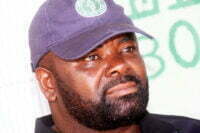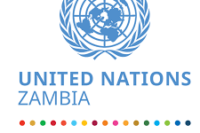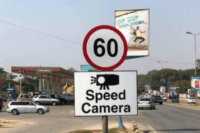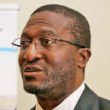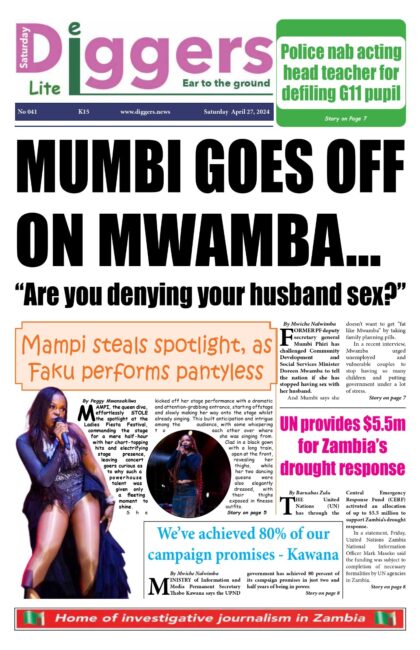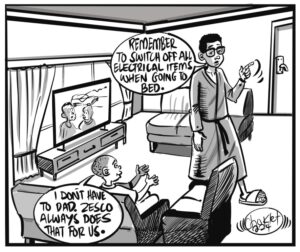Former Attorney General Musa Mwenye has broken his silence on the ongoing debate about escalating corruption levels in the country, saying the graft fight should not only target the weak and vulnerable.
Mwenye who served under president Michael Sata as Solicitor General and later Attorney General, could not resist commenting on the incident where Lusaka Province Minister Bowman Lusambo caught traffic officers allegedly taking bribes from motorists.
He said while Lusambo’s efforts were targeted at exposing corruption, it was important to target grand corruption among those who were taking proceeds of crime to invest in companies and assets, rather than only focussing on the weak and vulnerable.
His opinion however, attracted a Twitter war, as one of his followers wondered why he didn’t see the grand corruption while he was in government.
“Hon. Lusambo’s action helps anti – corruption efforts but corruption can’t be fought in a sporadic and cosmetic approach targeting only the weak and vulnerable participants in the crime. The Minister’s effort must now be followed by a concerted effort targeting grand corruption,” Mwenye twitted.
His follower called Ian Kanini then replied saying: “When you were appointed in government you didn’t see any corruption,” to which Mwenye responded: “I think the question should not be whether or not one saw corruption but whether one participated in it or condoned it.”
“What’s the difference between being part of a corrupt government and participating? A principled human being would refuse to be part of it,” Kanini pressed on, as Mwenye defended his position saying: “I was sworn in as Solicitor General in December 2011 and was later Attorney General under President Sata’s government. I was fired shortly after President Sata died after taking a position. I don’t recall any allegation of grand corruption in the 3 years I was in government. I did not serve a corrupt government. Let’s be factual.”
Kanini pushed on, accusing Mwenye of downplaying the grand corruption in Sata’s administration.
“Fair enough. If there was no corruption under Sata’s government then we need to redefine the term corruption,” said Kanini.
Mwenye responded saying: “I Would’ve loved to hear specifics but I respect your opinion and enjoyed the discourse. Anticorruption Act 2012 was enacted, FIC was made operational, government officials (including ministers) were dismissed pending investigations. He had his own faults but grand corruption – No.”
When contacted to elaborate his views on the ongoing corruption, Mwenye insisted that corruption was a cancer that needed serious attention, adding that the problem was cutting across political divide.
“Honourable Lusambo has highlighted a very grave problem that cannot be ignored. Corruption is a cancer and it is so cross cutting in its effects that we cannot deal with it on partisan lines. It is an issue that we must deal with as Zambians not as members of any one political party,” Mwenye said in an interview.
“In fact, apart from a few politicians who have spoken loudly on this subject, there appears to be a conspiracy of silence on this issue from both sides of the political divide. We must all begin to have an honest discussion about corruption. If ignored, it can reach pandemic levels and can affect the very fabric of our society. Corruption has the capacity of destroying our nation.”
He said targeting low ranking officers who were engaging in corruption to buy bread was not going to end the vice.
“Yes, the actions of some government officers who engage in bribery to buy necessities at home must be condemned in the strongest terms, but we must also condemn the corruption of those who use the proceeds to invest in companies or purchase huge assets. Corruption is corruption – let’s not only condemn the petty corruption of the weak and vulnerable low ranking officials who do it to buy bread but we must also condemn grand corruption. Our actions must be loud and tangible and must not only target those we perceive as our enemies. We should begin to condemn it in our own homes when it’s done by those close to us,” said Mwenye.
“I’m not an economist, but from the little I have read, there is no country in the world that has developed without a serious effort to tackle corruption. We cannot be serious about development and poverty alleviation without being seriously against corruption. We have only one Zambia. All of us have red Zambian blood flowing in our veins. Political parties are secondary! We are primarily Zambians and being patriotic requires putting Zambia above petty Vendettas, above political parties and definitely above corruption.”




